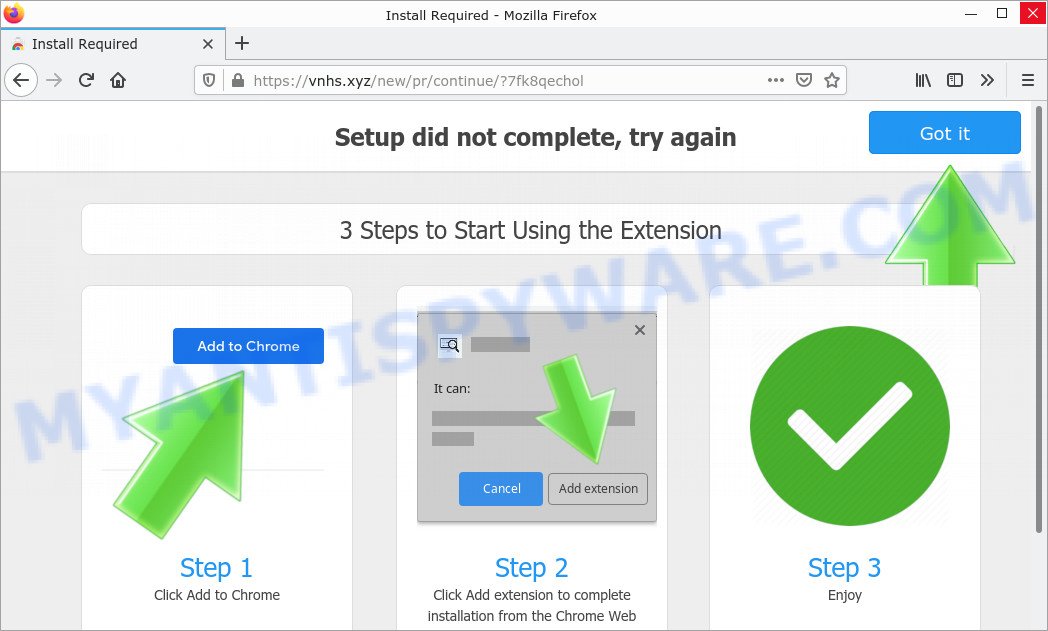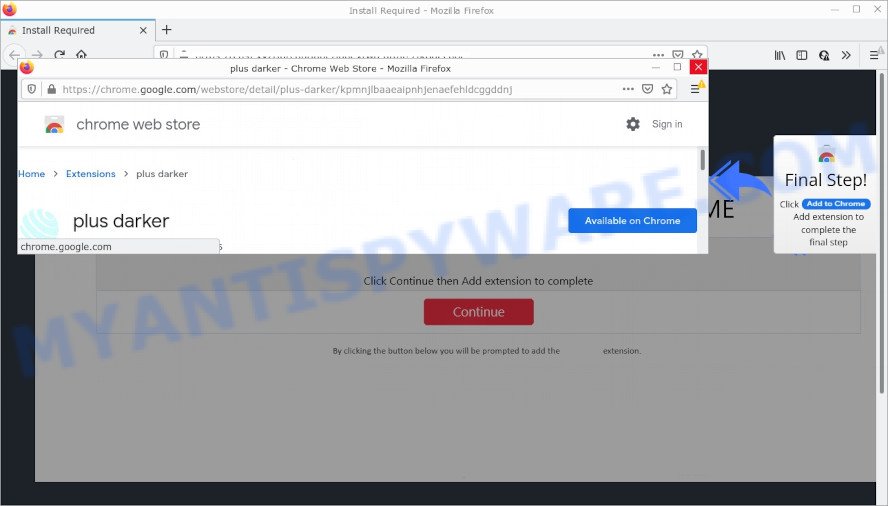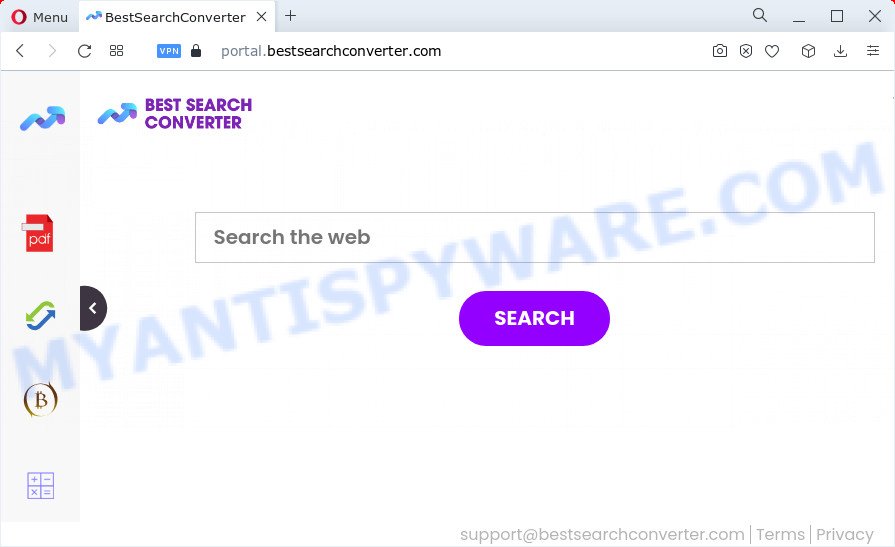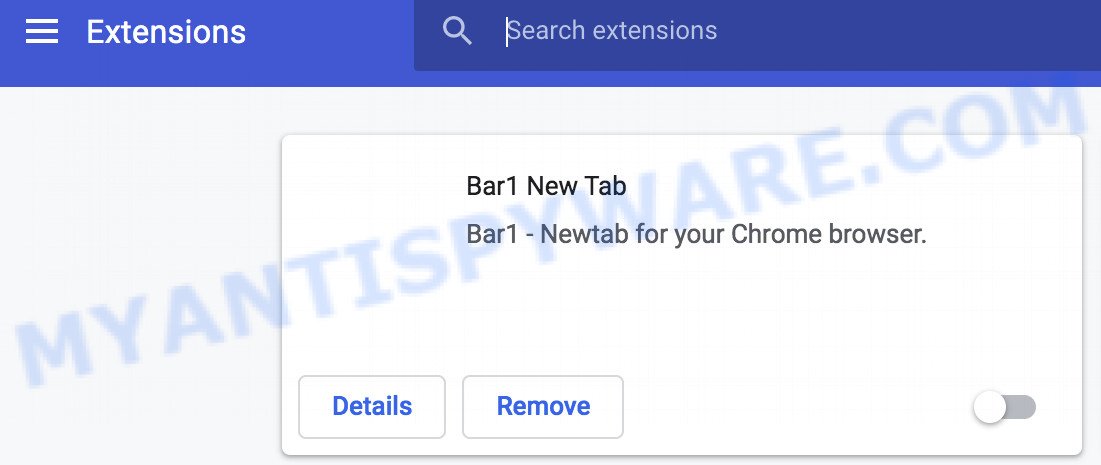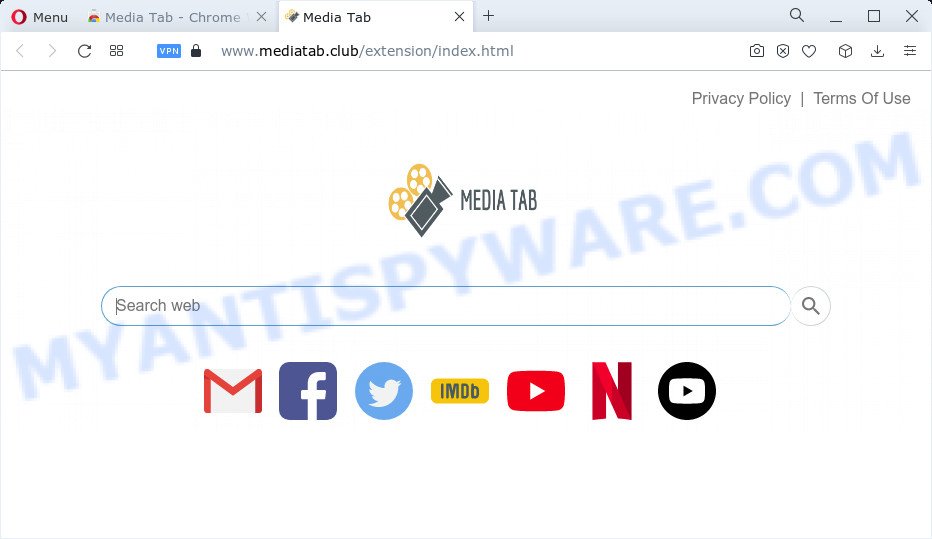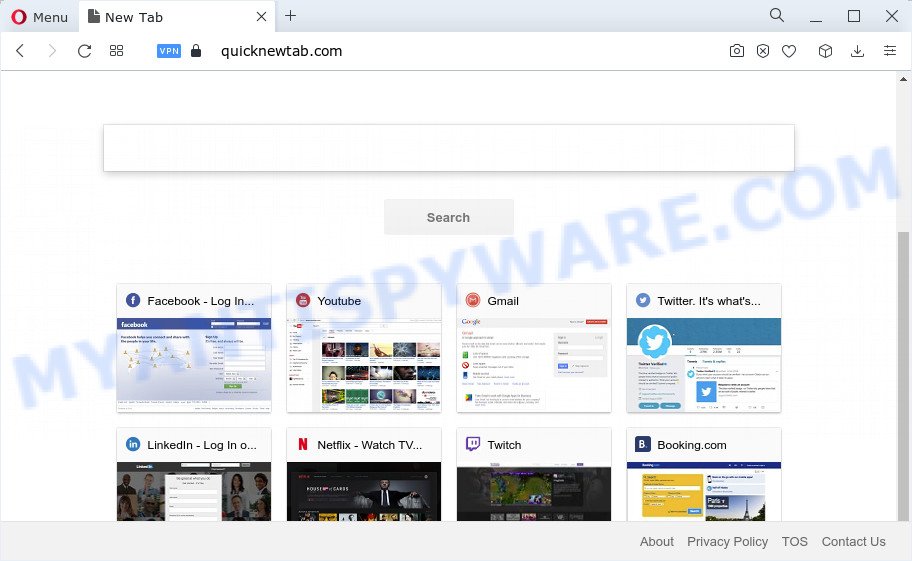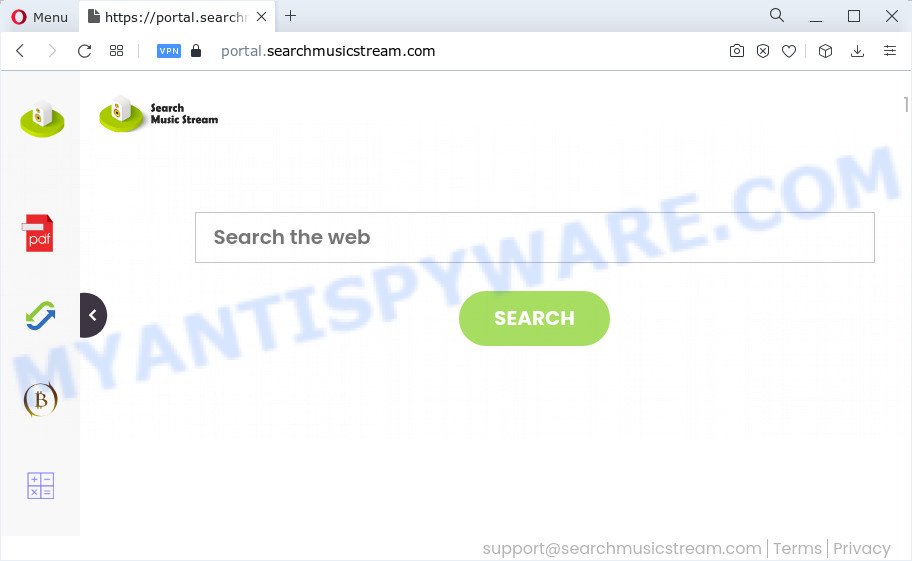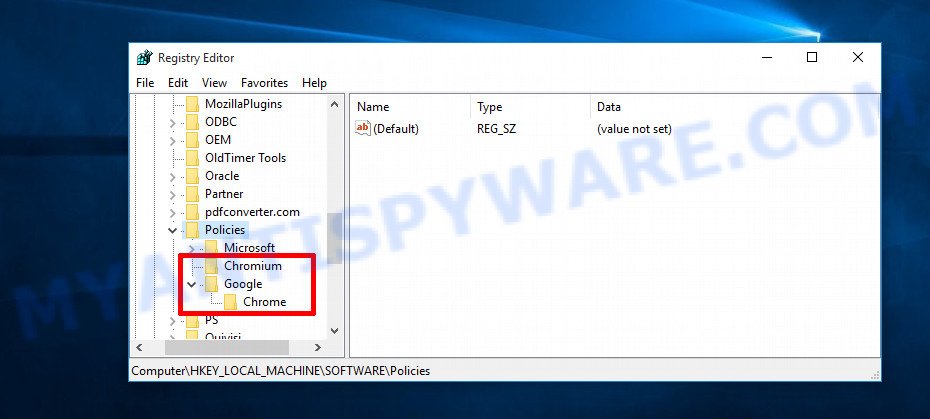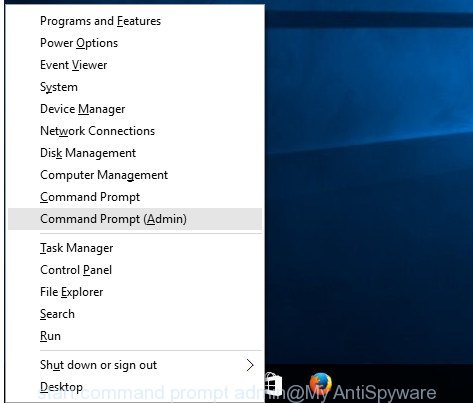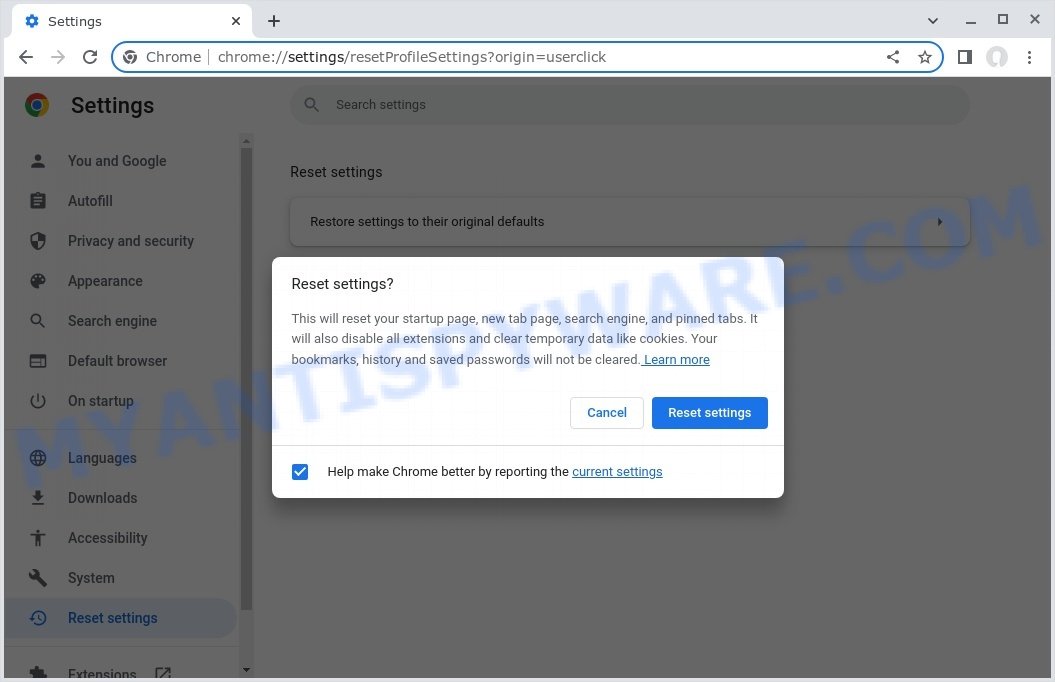Online Radio is a browser extension falsely advertised as a tool for accessing radio stations. In reality, it acts as adware, displaying unwanted ads and potentially leading to harmful scams. This extension can slow down internet connections by downloading numerous ads.
More alarmingly, it claims to read and modify all data on websites, posing a significant risk to users’ privacy and security. Online Radio can also change browser settings like the default search engine or homepage without consent, behaving as a browser hijacker. It’s often distributed through software bundling, leading to its unintentional installation.

Table of Contents
Understanding the Online Radio Adware 📻🚨
The Online Radio app is a type of adware, disguised as a browser extension for accessing radio stations. However, it operates in a way that endangers users’ privacy and internet experience. Unlike typical browser hijackers that redirect to unknown or harmful websites, Online Radio infiltrates users’ browsers under the guise of a functional radio service.
Why Does It Display Ads and Alter Browsing? 💸
The primary motive of Online Radio’s creators is financial gain. By displaying ads and potentially redirecting users to specific sites or search engines, they can earn revenue through ad clicks or affiliate marketing. This deceptive strategy not only disrupts the user experience but also poses a risk to privacy and security.
How Does Online Radio Operate? 🌐
This adware uses several tactics to intrude and manipulate users’ browsing activities:
- Ad Display: Online Radio bombards users with advertisements, which can range from annoying to malicious, potentially leading to scam websites.
- Data Access and Modification: The app claims the ability to read and modify all data on websites, which could lead to privacy breaches, phishing, or identity theft.
- Browser Setting Changes: It can function as a browser hijacker, altering settings like the default search engine or homepage, directing users to less trustworthy sites or search engines.
- Software Bundling: Online Radio often comes bundled with other free software, leading to its installation without the user’s explicit consent.
How Does Online Radio Infiltrate Computers? 🚪
Online Radio can be introduced to your system through various means:
- Software Bundling: Often packaged with other free or pirated software, installing the primary software inadvertently installs the adware.
- Deceptive Advertising: Users might be tricked into installing it, believing it to be a useful radio service extension.
- Phishing Tactics: Emails or fake alerts promoting the extension could lead to its installation.
- Compromised Downloads: Downloading from unreliable sources might unintentionally include the adware.
- TO CONTINUE – ADD EXTENSION TO CHROME pop-ups promote a browser hijacker
In Summary, the Online Radio app is a deceptive adware posing as a beneficial extension. It disrupts the browsing experience and poses significant privacy and security risks. Understanding its removal and preventive measures is crucial for maintaining a safe and uninterrupted browsing experience. Always be vigilant and informed! 🛡️🌐
Examples of Adware and Browser hijackers
Adware and browser hijackers, like the Online Radio app, are common threats in digital environments. They typically come bundled with free software, leading to issues such as unwanted ads, altered browser settings, and compromised privacy. Online Radio, disguised as a radio streaming extension, is an example of adware that manipulates browsing experiences and collects data.
Be aware of similar threats like Essential Adblocker, PC App Store, and Buzz adware, which pose similar risks. Recognizing and understanding these risks is key to protecting your computer and personal information. Stay vigilant and adopt safe browsing practices to mitigate these threats.
- BestSearchConverter is a hijacker
- Bar1 New Tab is a browser hijacker
- Media Tab browser hijacker
- Quick App is a browser hijacker
- SearchMusicStream is a browser hijacker
Threat Summary
| Name | Online Radio |
| Type | Adware, Potential Browser Hijacker |
| Primary Objective | Display advertisements, potentially alter browser settings, and collect user data. |
| Common Symptoms | Displays unwanted ads, possible browser setting changes (e.g., homepage, search engine), and data collection capabilities. |
| Primary Infiltration Methods | Software bundling, Deceptive advertising, Misleading download sources |
| Associated Risks | Privacy invasion, Phishing attacks, Identity theft, Unwanted system changes |
| Underlying Techniques | Advertising display, Data modification on websites, Prevention of normal browser setting restoration |
| Primary Target | Web Browsers (e.g., Google Chrome, Mozilla Firefox) |
| Removal | Uninstalling the extension, Resetting browser settings, Using reputable antivirus and anti-adware software |
How to remove Online Radio from Windows 11 (10, 8, 7, XP) 🛠️🚀
When Online Radio infiltrates your Windows computer, immediate action is essential. Such potentially unwanted software doesn’t just disrupt your browsing; it poses a genuine threat to your digital safety. In the subsequent steps, we’ll guide you through a clear and concise method to remove Online Radio from your Windows system. Dive in, and let’s restore your computer’s health.
To remove Online Radio, perform the steps below:
- Uninstall any suspicious programs
- Fix Windows Policies
- Remove Online Radio from Chrome
- Scan your computer for malware
Read this section to know how to manually remove the Online Radio hijacker. Even if the step-by-step guide does not work for you, there are several free removers below which can easily handle such hijackers.
Uninstall any suspicious programs
The first step is to check your computer for any suspicious programs or extensions and remove them. To do this, go to the Control Panel (on Windows) or Applications (on Mac) and uninstall any programs that you don’t recognize or that you think may be associated with the Online Radio hijacker.
|
|
|
|
Fix Windows Policies to Remove a malicious hijacker
Sometimes, the removal is hindered by certain malware-induced policies. By making changes to the Windows Registry and addressing group policies, you can overcome this obstacle. Here’s how:
- Open Windows Registry Editor:
- Press the Windows key (🪟) and “R” simultaneously. This will bring up the Run dialog box.
- Type “regedit” and hit Enter. The Windows Registry editor will now be visible.

- Navigate and Remove Malicious Registry Entries:
- Head over to “Computer\HKEY_LOCAL_MACHINE\SOFTWARE\Policies\”. Use this path as your guide.
- Identify and delete the folders named Chromium and Chrome which are associated with the “Managed by your organization” malware.
- Once done, exit the Windows Registry editor.

- Address Group Policy Folders:
- Hold the Windows key (🪟) and “X” together to open a quick-access menu.
- From the menu, choose Command prompt (Administrator). You’ll be presented with a command prompt window.

- Execute the Following Commands:
- Input
rd /S /Q "%WinDir%\System32\GroupPolicyUsers"and hit Enter. - Next, type
rd /S /Q "%WinDir%\System32\GroupPolicy"and press Enter. - Lastly, enter
gpupdate /forceand press Enter. If executed correctly, you’ll be greeted with messages indicating both the Computer Policy and User Policy have been updated successfully.

- Input
- Restart Your Computer:
- After executing the above steps, it’s crucial to restart your computer to ensure the changes take effect.
Remember, modifying the registry and group policies are advanced actions. Always proceed with caution and ensure you’re following the steps correctly.
Remove Online Radio from Chrome
Having successfully fixed any restrictions that might have prevented the removal of unwanted extensions, it’s now time to tackle and eliminate Online Radio from your Chrome browser.
- Access Chrome Extensions: Open your Google Chrome browser. Locate the three horizontal dots at the top-right corner (the Chrome menu button) and click it to reveal a drop-down. From this list, opt for ‘More Tools’ and subsequently select ‘Extensions’. Alternatively, quickly navigate by typing
chrome://extensionsinto Chrome’s address bar. - Inspect and Remove: Examine the list of installed extensions. Identify any unfamiliar or suspicious ones, or those you simply don’t need anymore. Click the “Remove” button beneath these extensions. A confirmation pop-up will appear; press “Remove” again.
- Reset Your Browser: To ensure no traces remain, consider resetting your browser settings. This action disables all extensions, clears cookies, and undoes unwanted changes but preserves your bookmarks and saved passwords. To do this:
- Revisit the Chrome main menu.
- Choose “Settings”.
- Find and select “Reset settings”.
- Click on “Restore settings to their original defaults”.
- Confirm by selecting the “Reset settings” button.

Note: If an unwanted extension remains despite these steps, consider using a trustworthy antivirus tool to scan your computer for any related malware or threats.
Scan your computer for malware
After you’ve tried to remove Online Radio and reset your browser, there might still be hidden problems. Some bad files can stay hidden or look like normal ones. It’s always a good idea to do a full computer scan to catch these. This way, you can be sure everything harmful is gone. Let’s make sure your computer is clean and safe!
To fully ensure your computer’s safety, consider using MalwareBytes to automatically remove the Online Radio hijacker. MalwareBytes is a trusted anti-malware tool with a strong track record. It’s been widely recognized for its efficiency in detecting and eliminating a broad range of threats, from sneaky browser extensions to more aggressive forms of malware. By employing advanced scanning techniques, MalwareBytes digs deep into your system, ensuring no malicious elements go unnoticed. Simply download, install, and run a full scan with MalwareBytes to clear out any lingering threats related to the Online Radio or other potential risks.
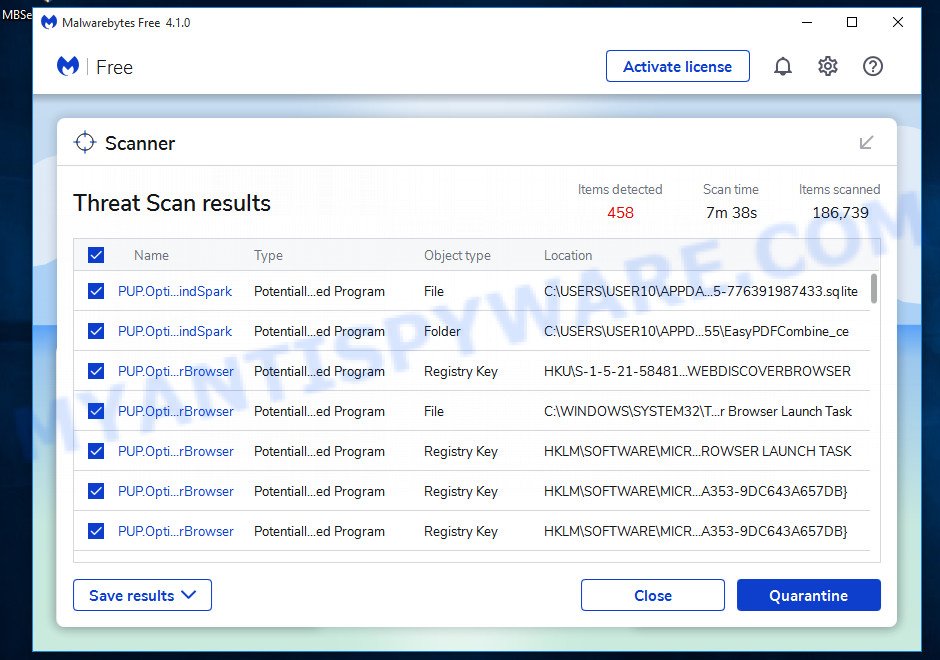
- Download Malwarebytes by clicking on the link below. Save it on your Windows desktop.
Malwarebytes Anti-malware
327064 downloads
Author: Malwarebytes
Category: Security tools
Update: April 15, 2020
- Once the download is done, close all applications and windows on your personal computer. Open a folder in which you saved it. Double-click on the icon that’s named MBsetup.
- Choose “Personal computer” option and press Install button. Follow the prompts.
- Once installation is finished, scan your computer. Run a full scan of your computer to detect and remove any browser hijackers and other forms of malware. The scan may take several minutes to complete, depending on the size of your hard drive and the speed of your computer.
- Remove detected threats. If the scan finds any threats, click Quarantine to remove them. The software will automatically remove the browser hijacker and any associated malware. After the removal process is complete, restart your computer to ensure that any changes made by the hijacker are fully removed.
The following video demonstrates how to remove hijackers, adware and other malware with MalwareBytes.
What to Do After Removing the adware 🤔✅
After successfully removing the Online Radio app from your computer, it is important to take some additional steps to ensure that your computer and personal information remain secure. Here are some recommended actions to take:
- It’s important to change your browser settings back to your preferred search engine and homepage. Make sure that Online Radio is completely removed from your browser’s settings and that it cannot reappear.
- If you entered any sensitive information such as login credentials or passwords while the browser hijacker was active, change them immediately. This will prevent any potential identity theft or unauthorized access to your accounts.
- To remove any traces of the browser hijacker, clear your browser history and cache. This will help ensure that any data or information collected by the hijacker is removed from your system.
- Use a reputable anti-malware program like Malwarebytes to scan your computer for any remaining malware or potentially unwanted programs (PUPs). This can help ensure that there are no hidden threats or malicious files on your computer.
- Make sure that your browser and operating system are up-to-date with the latest security patches and updates. This can help prevent future security issues and keep your system protected.
- To avoid getting infected with similar malware in the future, be cautious of downloads and only download from reputable sources. Avoid clicking on suspicious links or downloading attachments from unknown sources.
Conclusion 📝👋
The Online Radio adware mainly comes from Chrome extensions. These extensions look like normal or useful tools, but they actually cause unwanted changes in your browser. When you install them, they can change where your searches go, often sending you to google.com instead of your chosen search site. It’s important to be careful about what extensions you add to your browser and where you download them from. Checking and cleaning your browser’s extensions regularly can help keep your online experience safe and normal.
Remember, removing the Online Radio app is just the first step. It’s important to remain vigilant and proactive in protecting yourself from similar threats that may emerge in the future. Stay informed, stay cautious, and enjoy a safer browsing experience!
